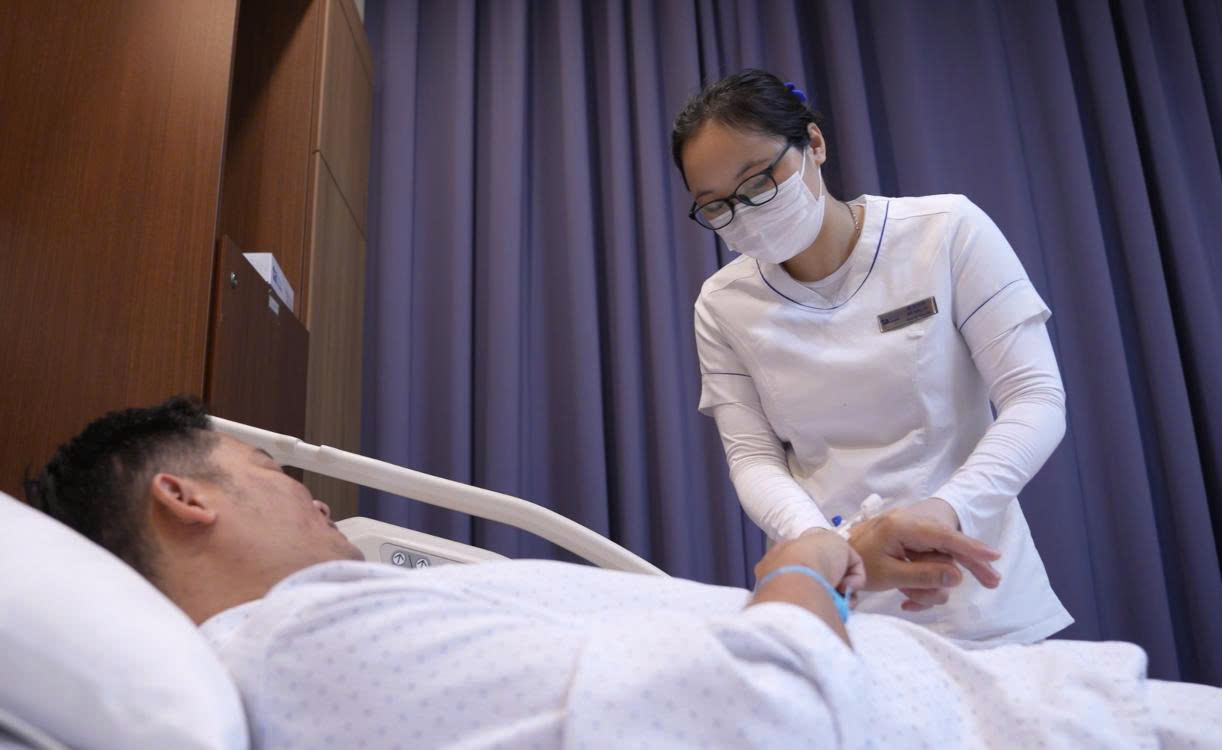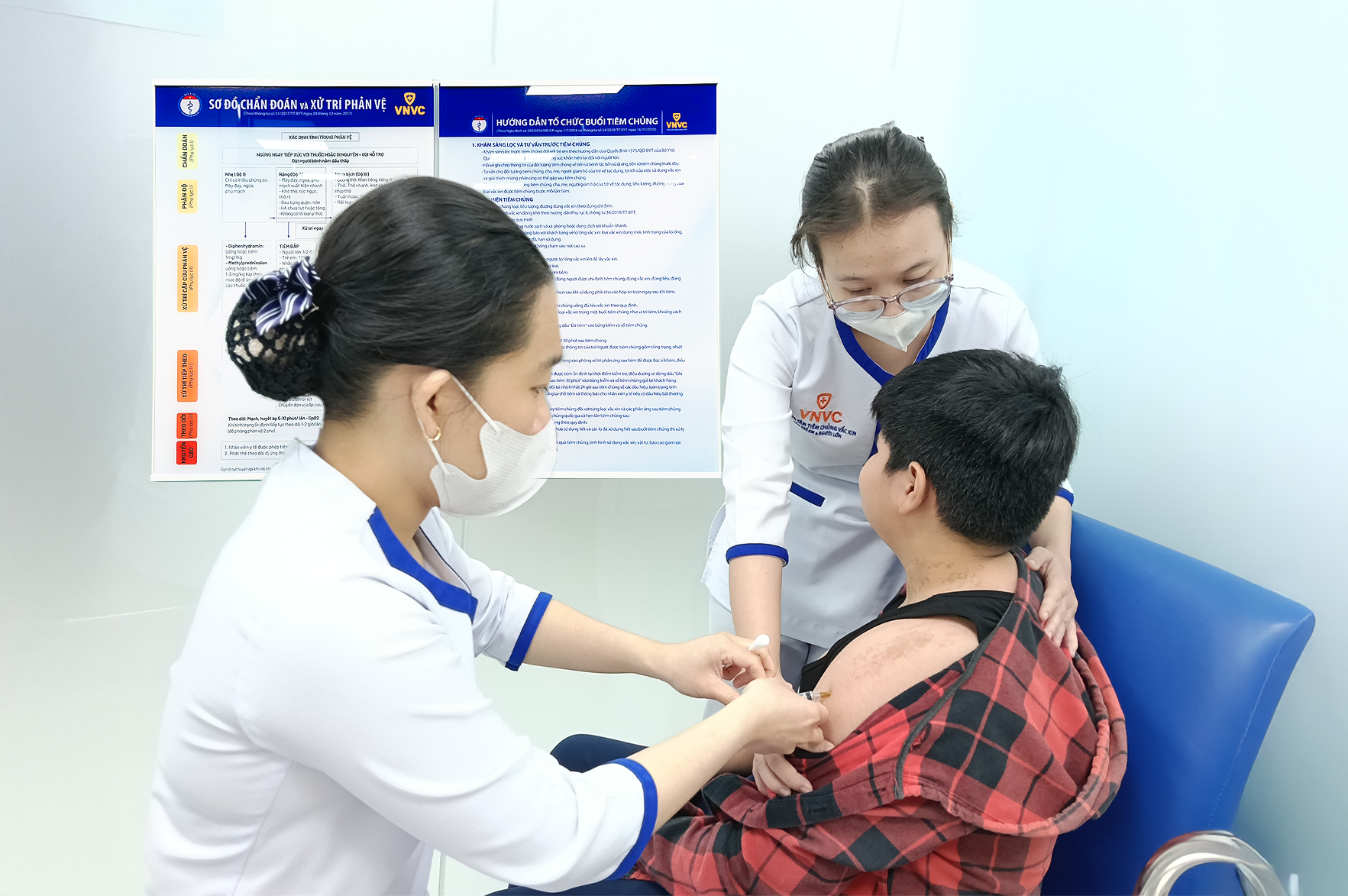Dr. Le Xuan Luat from the Internal Medicine Department of Tam Anh General Hospital in Hanoi explains that dengue fever is a viral infection transmitted by Aedes mosquitoes. The risk of dengue outbreaks often increases after heavy rains and prolonged flooding.
Dr. Luat explains that rain creates damp environments and puddles, ideal breeding grounds for mosquitoes. Poor sanitation after floods further increases the risk of mosquito bites and disease transmission.
"Even a single bottle cap filled with water can produce dozens of mosquitoes in a few days," Dr. Luat said.
 |
A dengue patient receiving treatment. Illustrative photo: *Tam Anh General Hospital* |
Dr. Luat also notes that this year's storm season is predicted to have several unusually heavy rain events. Since there is no specific treatment for dengue fever, proactive prevention is essential to protect public health. He recommends the following steps:
Environmental sanitation: After floods recede, it's crucial to clear garbage, unclog drains, clear vegetation around homes, and dispose of household waste properly to eliminate stagnant water. Empty stagnant water from household items, discard unused containers, and cover water storage containers tightly. Maintain weekly environmental cleaning habits to prevent mosquito breeding.
Preventing mosquito bites: Use mosquito nets day and night, as Aedes mosquitoes typically bite in the early morning and evening. Wear long-sleeved clothing and use mosquito repellent. Mosquito coils or electric swatters can be helpful in heavily infested areas. Participate in community mosquito control campaigns and educate children and the elderly about mosquito bite prevention.
Vaccination: In addition to mosquito control measures, vaccination is a supplementary measure, especially during the rainy season when the risk of outbreaks is high. Vietnam has a vaccine that covers all four dengue virus serotypes (Den-1, Den-2, Den-3, and Den-4), available for children aged 4 and above, and adults. The vaccine is over 80% effective in preventing dengue fever and over 90% effective in preventing hospitalization.
 |
A child receiving a dengue vaccine at VNVC Vaccination System. Photo: *Moc Thao* |
Early recognition to avoid complications: Be vigilant for symptoms such as sudden high fever (39-40°C), headache, eye pain, fatigue, red rash, nosebleeds, and bleeding gums. Severe cases can lead to shock, internal bleeding, and life-threatening complications.
Dr. Luat advises against self-treating with intravenous fluids or fever reducers if dengue fever is suspected. Seek medical attention for proper diagnosis and treatment. Early detection and appropriate medical care can significantly reduce mortality rates and severe complications.
According to the World Health Organization (WHO), in 2024 alone, the world recorded over 14.6 million dengue cases and over 12,000 deaths, concentrated in areas affected by climate change and frequent flooding. Vietnam, a high-risk country for dengue and considered under "pandemic threat," sees hundreds of thousands of cases annually, with hospitalization and complication rates significantly increasing during the rainy season. Dengue fever can affect all ages and cause severe complications such as shock, internal bleeding, liver and kidney damage, and even death if not detected and treated early.
Thanh Ba












